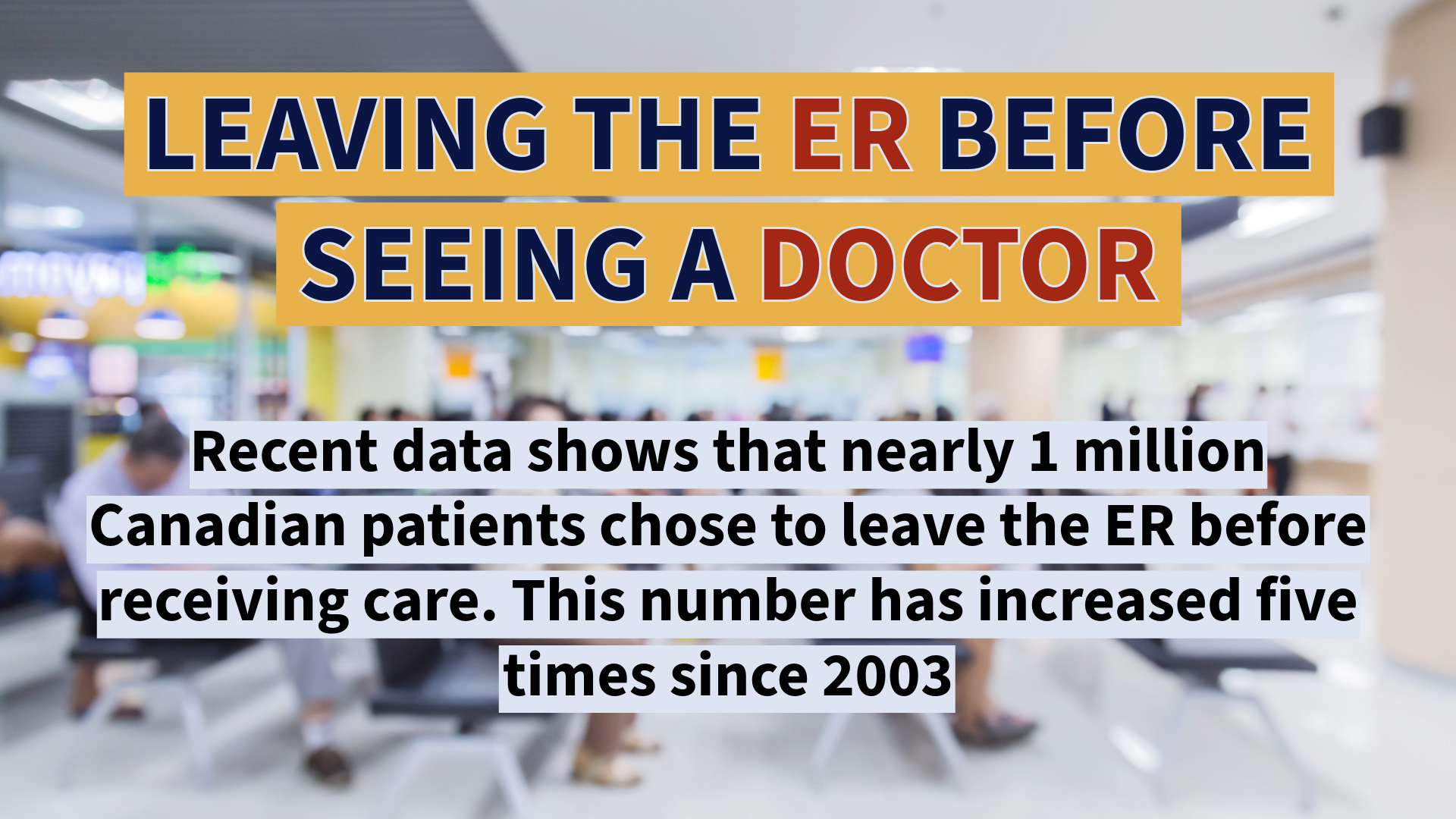
Nurse Alters Morphine Record, Patient Dies: CNO Orders Permanent Resignation
A Profound Breach of Trust in End-of-Life Care In CNO v. Lindsey Coyle, the Discipline Committee of the College of Nurses of Ontario addressed one

According to a recent CTV News article, data from the Canadian Institute for Health information (CIHI) indicates that 184,753 people went to the emergency room (ER) for help in 2003-2004 and then left without medical attention aside from the initial nurse interview. In the two decades since, rates have risen every year, aside from a small dip in 2020-2021 when Canadians were generally avoiding hospital visits during the first part of the pandemic.
In the most recent data available, CIHI reported that there were more than 14 million hospital visits in 2022 and that a massive 963,637 patients chose to leave before receiving care. According to this data, the number of patients leaving ERs before seeing a physician has increased five times since 2003.
Excessive wait times are clearly the reason why patients are leaving the ER before being seen by a doctor. If you leave hospital before seeing a doctor or against medical advice, you are likely putting yourself at an increased risk of medical harm. To make matters worse, the law may hold you partly (or wholly) accountable for any bad outcome that may be caused by delayed medical treatment owing to your leaving the hospital should you try to bring a medical malpractice claim.
There are recent examples in the news of patients deciding to leave hospital before seeing a doctor because of unreasonable wait times.
Charlene Snow, age 67, went to the ER in Cape Breton Regional Hospital due to jaw pain and flu-like symptoms. After waiting for seven hours to be seen by a physician, she went home, where she died of fluid buildup around her heart – something that could have been treated if she was seen by an ER physician.
Leaving the ER Before Seeing a Doctor Could Constitute Contributory Negligence
A lawsuit for medical malpractice seeks compensation for harm caused by the negligence of a doctor, hospital or other healthcare professional. An excessively long wait time in the ER that causes significant harm or even the death to a patient could give rise to a medical malpractice claim.
The cause of the delay may be that the patient was improperly triaged, or their symptoms worsened requiring expeditated care, or that an emergency physician was called to see the patient urgently but failed to do so in a timely manner. If it can be proven that that there was substandard medical care that caused harm, then the patient will have a valid claim for medical malpractice.
What are the legal implications to the patient if they leave the hospital before the harm occurs? Is it still the hospital or doctor’s fault? The law expects every person to act reasonably, not just healthcare professionals. If a patient is found to have acted unreasonably in failing to follow medical advice, they may be found partly responsible for their own harm.
In the 2023 medical malpractice trial decision of Martindale Estate v. Bahl, the Ontario Superior Court of Justice found a number of instances where a patient did not follow up as recommended by her treating physicians. In this case, the trial judge assessed the patient 40% responsible for her own bad outcome for failing to follow the advice of her doctors.
If you or a loved one leaves the hospital before seeing a doctor and a harmful medical event occurs a short time later, there is a very real possibility that from a legal perspective some blame may be put on you. It is unlikely that a patient would be fully blamed in such circumstances if it can be proven that the delay was caused negligence on the part of the hospital or physician involved. Nevertheless, any finding of contributory negligence would decrease the amount of compensable available to the patient or their family.
Navigating our overburdened Ontario healthcare system is extremely challenging, particularly for less sophisticated patients. The law, however, expects all patients to take personal responsibility for their own choices in accessing healthcare. Therefore, any patient thinking about leaving the ER before seeing a doctor should consider not only the medical consequences of this decision, but the legal ones as well.

A Profound Breach of Trust in End-of-Life Care In CNO v. Lindsey Coyle, the Discipline Committee of the College of Nurses of Ontario addressed one

What College of Physicians and Surgeons of Ontario v. Thirlwell, 2026 ONPSDT 5 Means for Patients and Public Trust In College of Physicians and Surgeons